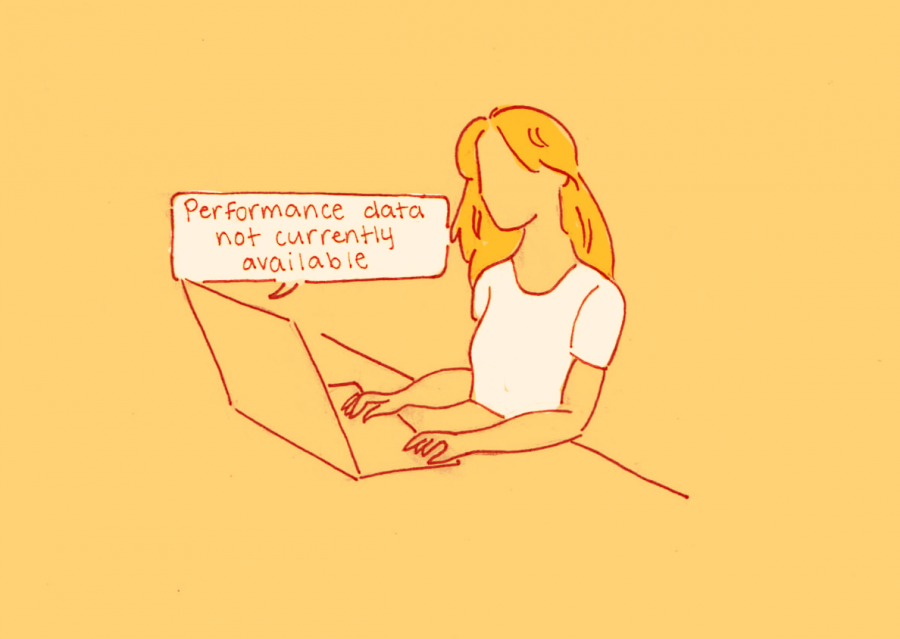myGroton “Progress” Should Always Show Progress
It’s winter term, and you have two majors the next day — both of which are bound to play a significant role in your overall term grade. You don’t feel prepared for either. Which one should you spend more time studying for? While the choice usually boils down to numerous factors, such as general level of readiness, one common reason to spend more time on one subject is that the perceived grade in the other subject is already higher. As of right now, however, students have a difficult time ascertaining the precise grade of each class because myGroton’s Progress — the website that teachers can use to post grades — is rarely used. This stymies students’ ability to make rational judgments about how to spend their time. Moreover, it shrouds the final grade of students, contributing to unnecessary anxiety. Ultimately, Groton should utilize myGroton’s Progress function at all times to empower students with the knowledge necessary to make better decisions, improve students’ overall mental health, and, counterintuitively, help students focus more on learning and less on grades.
The decision of whether we should show grades must be based on the purpose of grades itself: a general measure of academic mastery. Grades as an approximate measurement are vital not just to students, but also to colleges. For students, grades reflect how well they are doing in class, and for colleges, grades are a crucial component of the admissions process, as they are frequently used in tandem with SAT/ACT scores to gauge general academic competency. Grades will be all the more important this year, due to the general shift to test-optional admissions. While there are valid questions about whether grades truly represent student achievement, those faults should be remedied through changes in the grading system itself — not whether grades are displayed.
Moreover, as long as our grading system isn’t purely arbitrary, grade publicity won’t cause additional stress. If grades actually do measure academic performance, then why would informing a particular student of his performance be negative? If the relatively poor performance indeed warrants a poor grade, then that student will not be further affected by seeing the result of his work; mental health wouldn’t be made worse than it already is.
In fact, showing grades would have the opposite effect: stress would decrease, not increase. In classes that always display my grade, such as AP Latin and Data Structures, I still think about when my grade is going to come out, and I feel a certain level of stress during the time leading up to when the grade is published. Once the grade comes out, I may feel disappointed due to a poor performance, but there is little reason to stress afterward about the effect the test had on my overall term grade because myGroton automatically shows me. However, for classes that do not utilize myGroton’s Progress, an element of uncertainty continues to exist even after seeing an individual test grade because we don’t know how much it affects our final term-grade.
Another widespread belief is that complete grade transparency creates a culture focused on grades, rather than on learning. However, because grades aren’t published, students end up spending even more time thinking about what their final term grade might be. If grades were always on myGroton, there would be no ambiguity, and thus no reason to mindlessly waste time by speculating rough averages.
“I must constantly crunch numbers to calculate what grade I need to achieve to maintain or improve an average, fixating over the numbers and performing in the interest of improving an unknown average instead of focusing on demonstrating knowledge that I have obtained,” Alisa Gulyansky ’24 observed.
Lastly, there is a claim that grade publicity will worsen toxic competition. Indeed, while such toxicity may already exist, showing grades on myGroton would do nothing to exacerbate the situation. After all, students are currently getting grades back on every individual assignment, so if students are inclined to feel toxic, they wouldn’t suddenly become even more toxic than they already are.
It would be idealistic for me to claim that displaying grades at all times would eliminate all our academic stress. It wouldn’t. But we must also recognize that there is no way to eliminate performance-based stress — and that grades aren’t the root of the problem. Through our misidentification of the issue, it is common for teachers to shield grades from our students, which introduces irrational obscurity, foments student anxiety, and undermines student awareness of academic performance. It’s time that the “progress” section of myGroton actually starts showing student progress for every class.












